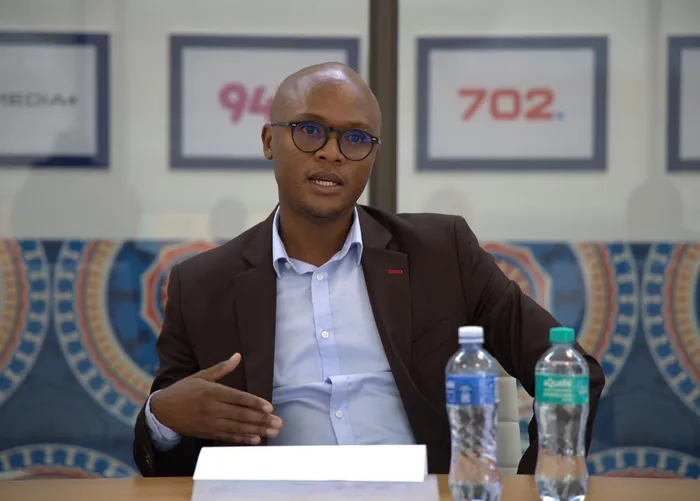Parliament to grill Minister Malatsi on controversial broadband policy favouring Starlink

Minister of Communications and Digital Technologies Solly Malatsi will brief Parliament on a draft policy easing B-BBEE rules for tech firms like Starlink, amid growing concerns over its impact on transformation laws.
Image: Solly Malatsi/X
Parliament’s Portfolio Committee on Communications and Digital Technologies will on Tuesday, hold a crucial briefing with Minister Solly Malatsi and his department amid mounting controversy over newly gazetted policy directions that could ease B-BBEE requirements for satellite operators like Elon Musk’s Starlink.
The focus of the meeting is a draft policy directive relating to the Equity Equivalent Investment Programme (EEIP) in the ICT sector. The directive, published on May 23, outlines a path for multinational companies to bypass traditional equity ownership rules, a move critics say undermines South Africa’s transformation legislation.
According to the Committee Chairperson Khusela Diko, “The Portfolio Committee on Communications and Digital Technologies has invited Minister Solly Malatsi and the Department of Communications and Digital Technologies to appear before the committee and brief on the recently gazetted policy directions.”
Diko further added: “The recently gazetted policy directions appear to be in contravention of the Electronic Communications Act and in favour of low earth orbit satellite provider SpaceX.”
In a post on X (formerly Twitter), Malatsi confirmed his attendance, saying, “I’ll honour the invitation.”
The directive comes in the wake of a high-profile diplomatic meeting between President Cyril Ramaphosa, US President Donald Trump, and Musk in Washington on last week.
Reports suggest the South African government may be softening B-BBEE rules to accommodate Starlink’s entry into the local market. Musk has long argued that the only reason Starlink hasn’t launched in South Africa is because “he was not black.”
Opposition parties have sharply criticised the policy. Build One South Africa (BOSA) Deputy Leader Hlazo Webster slammed it as a betrayal of transformation goals:
“This is not transformation, it’s capitulation. The message being sent is that if you are a powerful foreign billionaire, you can sidestep South Africa’s laws while our local businesses are forced to jump hoops.” “What begins as a special concession ends in state capture,” she warned.
The Department has defended the directive, saying it aims to “significantly expand access to broadband connectivity to poor South Africans and people living in remote parts of the country.”
It emphasised that equity equivalent investment programmes, recognised in the Amended B-BBEE ICT Sector Code, are designed to accommodate multinational corporations who face limitations in meeting local ownership requirements.
According to the Department’s statement, the goal is to“encourage investment, including strategic infrastructure investment, and innovation in the communications sector,” and to “harmonise the requirements and provisions of the Act with other legislation that applies to the recognition of ownership of members of the ICT Sector.”
The Committee will also receive briefings on the settlement of the SABC’s debt to Sentech, including expenditure from a R150 million virement, and a report from the Film and Publication Board on its 2024/25 third and fourth quarter performance.
hope.ntanzi@iol.co.za
Get your news on the go, click here to join the IOL News WhatsApp channel.
IOL Politics
Related Topics: